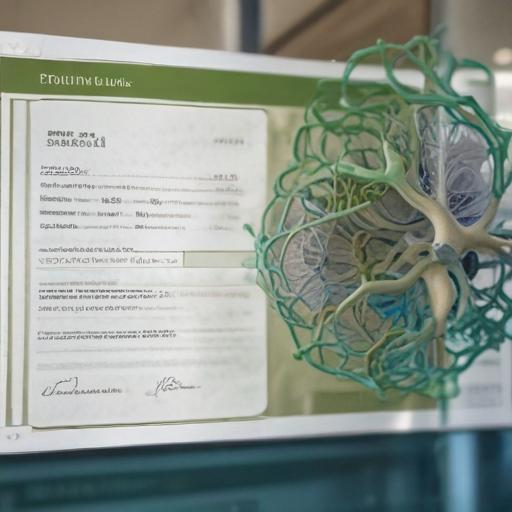Stony Brook researcher lands KidneyCure grant to push glomerulus research forward
Robert Bronstein, a faculty research investigator in the Department of Medicine’s Division of Nephrology and Hypertension at the Renaissance School of Medicine, has been awarded a KidneyCure grant to advance his work on the kidney glomerulus, the organ’s central filtration unit.
Bronstein is one of 23 early-career kidney disease researchers nationwide to receive KidneyCure’s 2025 award. He is among only nine grantees selected for the Transition to Independence Grants Program, which supports promising young scientists as they launch their own independent research programs. KidneyCure describes these grantees as future leaders in nephrology whose discoveries could improve the lives of people with kidney diseases.
His program focuses on pathologies that affect the glomerulus. When this filtration unit is damaged, kidney function declines and can progress to end-stage kidney disease. Bronstein explains that the aim is to map the diverse cellular players within the glomerular filtration barrier and understand how they are altered during disease, with the goal of developing therapies that preserve kidney function and quality of life.
Recent work in the field has highlighted a role for proteins in the AP-1 transcription factor complex in glomerular disease, particularly in the behavior of parietal epithelial cells during injury. Bronstein notes that the KidneyCure award could open new avenues of research into how AP-1 signaling influences these cells in human diseases such as focal segmental glomerulosclerosis (FSGS).
The KidneyCure grant provides Bronstein with a total of $200,000 to be used over two years (July 2025–June 2027). He conducts his research in the Mallipattu Lab, where he has been based since 2020.
For more about Bronstein’s research, a Q&A is available.
Why this matters
– The award recognizes early-career scientists who may drive future advances in nephrology, potentially translating basic findings into new treatments.
– A focus on glomerular biology and AP-1 signaling could yield insights applicable to diseases like FSGS, which often lead to kidney failure.
– The funding supports a two-year, independent research trajectory, helping bronstein build a bridge from discovery to potential therapeutic strategies.
What this could mean moving forward
– If the work uncovers clear mechanisms by which glomerular cell types interact and deteriorate during disease, it could guide the development of targeted therapies that slow or halt progression to kidney failure.
– The findings may stimulate cross-disciplinary collaborations in transcription factor signaling and nephrology, accelerating translational opportunities for patients.
In brief, the grant reflects momentum in Stony Brook’s nephrology research and reinforces the potential to translate cellular insights in the glomerulus into meaningful therapies that protect kidney function and quality of life.
